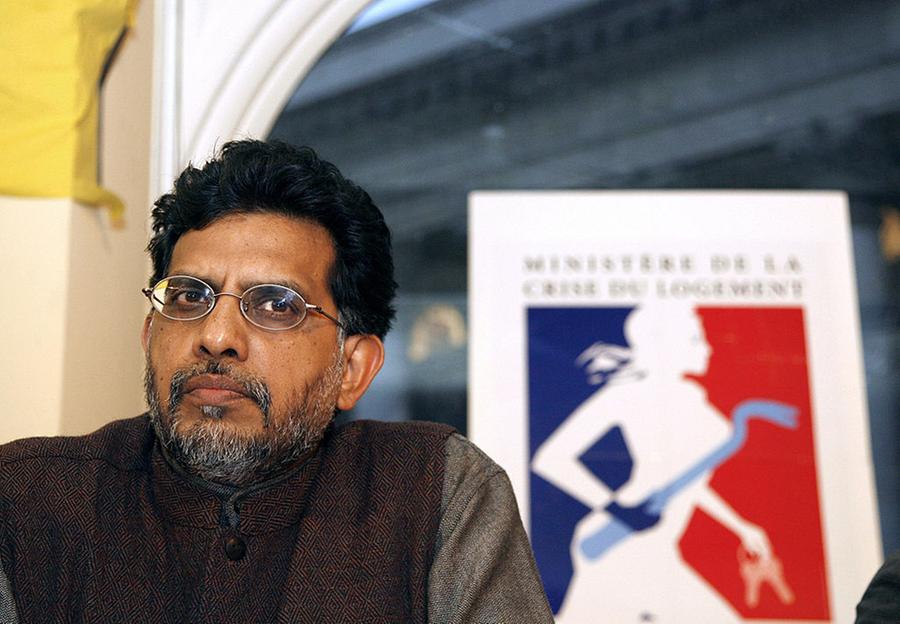Politics
UN Panel Claims Genocide in Gaza Amid Controversial Leadership

A three-member panel established by the UN Human Rights Council (UNHRC) has concluded that there are “reasonable grounds” to assert that genocide is occurring in Gaza. The independent inquiry, formed in 2021, has drawn scrutiny due to the backgrounds of its members, who have previously made controversial remarks regarding Israel and Jewish communities.
The panel, officially known as the Independent Commission of Inquiry on the Occupied Palestinian Territories, includes retired South African judge Navi Pillay, Indian commissioner Miloon Kothari, and Australian lawyer Chris Sidoti. Their recent findings suggest that four of the five genocidal acts defined under international law have been perpetrated since the escalation of conflict in 2023 initiated by Hamas.
Controversies Surrounding the Panel’s Leadership
Pillay, who held the position of UN High Commissioner for Human Rights from 2008 to 2014, has been criticized for her previous statements regarding Israel. In 2020, she signed a petition urging governments to impose sanctions on what she termed “apartheid Israel.” Following the conflict in May 2021, she accused Israel of provoking the violence through “aggressive actions” and has consistently voiced concerns about discrimination against Palestinians.
In response to her leadership, Hillel Neuer, head of the monitoring group UN Watch, publicly called for Pillay’s resignation in 2022, likening her appointment to asking a vegetarian to review a steakhouse. Neuer’s statement reflects a broader sentiment among critics who argue that her previous positions compromise the integrity of the inquiry.
Kothari has also faced backlash for his comments about Jewish influence on social media. During a podcast in July 2022, he expressed disappointment over what he perceived as control exerted by the “Jewish lobby.” A month later, he issued a formal apology for his remarks, acknowledging they were inappropriate. Sidoti’s past comments have similarly attracted attention; he reportedly stated that some Jews were “throwing around accusations of antisemitism like rice at a wedding,” further fueling accusations of bias within the inquiry.
Responses to the Findings
In a statement accompanying the report, Pillay asserted that there exists a clear intent to destroy Palestinians in Gaza through actions that meet the criteria outlined in the Genocide Convention. The inquiry specifically named Israeli Prime Minister Benjamin Netanyahu, President Isaac Herzog, and former Defence Minister Yoav Gallant, attributing to them the incitement of genocidal actions.
The Israeli government has categorically rejected the panel’s findings, labeling the report as reliant on “falsehoods” perpetuated by Hamas. Officials stated: “In stark contrast to the lies in the report, Hamas is the party that attempted genocide in Israel, murdering 1,200 people, raping women, burning families alive, and openly declaring its goal of killing every Jew.” Israel has called for the immediate abolition of the Commission of Inquiry, denouncing it as a source of disinformation.
The UN has been approached for further comments regarding the panel and its findings. As the situation in Gaza remains dire, the implications of this report and its contentious leadership continue to provoke significant international attention and debate.
-

 Lifestyle3 months ago
Lifestyle3 months agoLibraries Challenge Rising E-Book Costs Amid Growing Demand
-

 Sports3 months ago
Sports3 months agoTyreek Hill Responds to Tua Tagovailoa’s Comments on Team Dynamics
-

 Sports3 months ago
Sports3 months agoLiverpool Secures Agreement to Sign Young Striker Will Wright
-

 Lifestyle3 months ago
Lifestyle3 months agoSave Your Split Tomatoes: Expert Tips for Gardeners
-

 Lifestyle3 months ago
Lifestyle3 months agoPrincess Beatrice’s Daughter Athena Joins Siblings at London Parade
-

 World3 months ago
World3 months agoWinter Storms Lash New South Wales with Snow, Flood Risks
-

 Science3 months ago
Science3 months agoTrump Administration Moves to Repeal Key Climate Regulation
-

 Science2 months ago
Science2 months agoSan Francisco Hosts Unique Contest to Identify “Performative Males”
-

 Business3 months ago
Business3 months agoSoFi Technologies Shares Slip 2% Following Insider Stock Sale
-

 Science3 months ago
Science3 months agoNew Tool Reveals Link Between Horse Coat Condition and Parasites
-

 Sports3 months ago
Sports3 months agoElon Musk Sculpture Travels From Utah to Yosemite National Park
-

 Science3 months ago
Science3 months agoNew Study Confirms Humans Transported Stonehenge Bluestones









